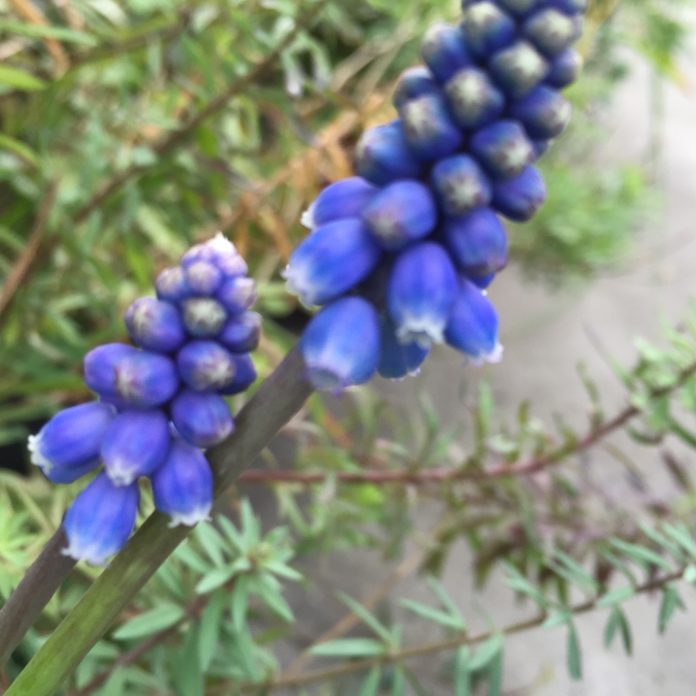Muscari, commonly known as grape hyacinths, are charming spring-flowering bulbs that bring a burst of colour to UK gardens. Known for their clusters of small, bell-shaped flowers resembling grapes, these low-maintenance plants are perfect for borders, rockeries, pots, and naturalising in lawns.
Here’s a guide to growing and caring for muscari in the UK.
Choosing the Right Muscari
Popular varieties for UK gardens include:
- Muscari armeniacum: The classic grape hyacinth, with vibrant blue flowers blooming in March to April.
- Muscari latifolium: A striking variety with two-toned flowers—blue and purple.
- Muscari botryoides ‘Album’: A delicate, white-flowered variety.
- Muscari azureum: Smaller and more delicate, with sky-blue flowers.
Planting Muscari
- When to Plant
- Plant muscari bulbs in September to November, before the first frost.
- Location
- Choose a sunny or partially shaded spot. Muscari tolerates a range of conditions but flowers best in full sun.
- Soil Requirements
- Muscari prefers well-draining soil but is adaptable to most soil types.
- If your soil is heavy clay, improve drainage by mixing in grit or sand.
- How to Plant
- Plant bulbs 8–10 cm deep and 5–10 cm apart, with the pointed end facing up.
- For naturalised displays, scatter bulbs randomly and plant them where they fall.
Caring for Muscari
- Watering
- Water sparingly after planting, then only during dry spells in early spring (February to April). Overwatering can cause bulbs to rot.
- Fertilising
- Apply a balanced bulb fertiliser in March to support flowering and foliage growth.
- Deadheading
- Remove spent flowers after blooming in April to prevent excessive self-seeding, as muscari can spread aggressively.
- Foliage Care
- Allow the foliage to die back naturally after flowering (May to June) to store energy for the next year’s blooms. Avoid cutting it too early.
- Mulching
- Apply a thin layer of compost or leaf mulch in autumn to enrich the soil and protect bulbs from severe frost.
Seasonal Care Guide
- September to November: Plant muscari bulbs in prepared soil or pots.
- February: Look for emerging shoots, especially in mild winters.
- March to April: Enjoy muscari in full bloom. Water lightly and feed with fertiliser.
- May to June: Remove faded flower heads but leave the foliage to die back naturally.
- July to August: Allow bulbs to rest during their dormant period. Avoid overwatering during this time.
Growing Muscari in Pots
Muscari is ideal for pots and containers:
- Use a well-draining, multi-purpose compost mixed with grit.
- Group bulbs closely together (2–3 cm apart) for a dense floral display.
- After flowering, allow the leaves to wither naturally, then either leave bulbs in the pot or transplant them into the garden in autumn.
Companion Planting
Muscari pairs beautifully with:
- Tulips and daffodils: Their taller blooms complement muscari’s low-growing clusters.
- Primroses and violas: Add early-spring colour alongside muscari.
- Perennials like hostas and ferns: Provide interest later in the season as muscari dies back.
Propagating Muscari
- Self-Seeding
- Muscari often self-seeds freely. To control spread, deadhead flowers after blooming.
- Division
- Lift and divide clumps of bulbs in September, replanting them immediately for the best results.
Conclusion
Muscari is a delightful addition to UK gardens, offering vibrant colour with minimal effort. Its adaptability and ability to naturalise make it a reliable choice for creating carpets of springtime beauty. Whether in borders, pots, or wildflower-style displays, muscari’s charm will brighten your garden year after year.




